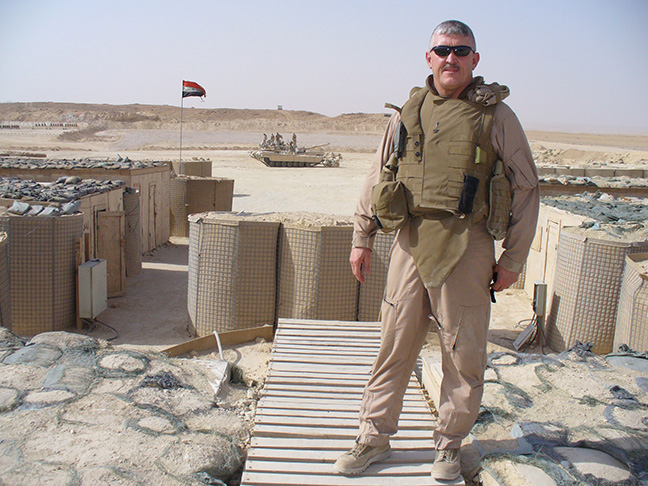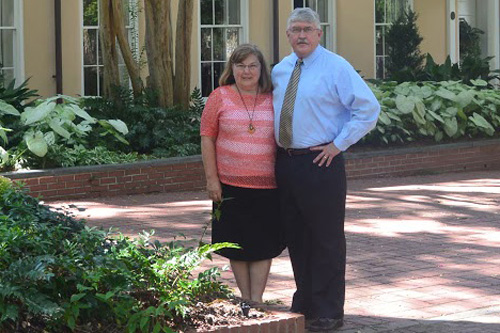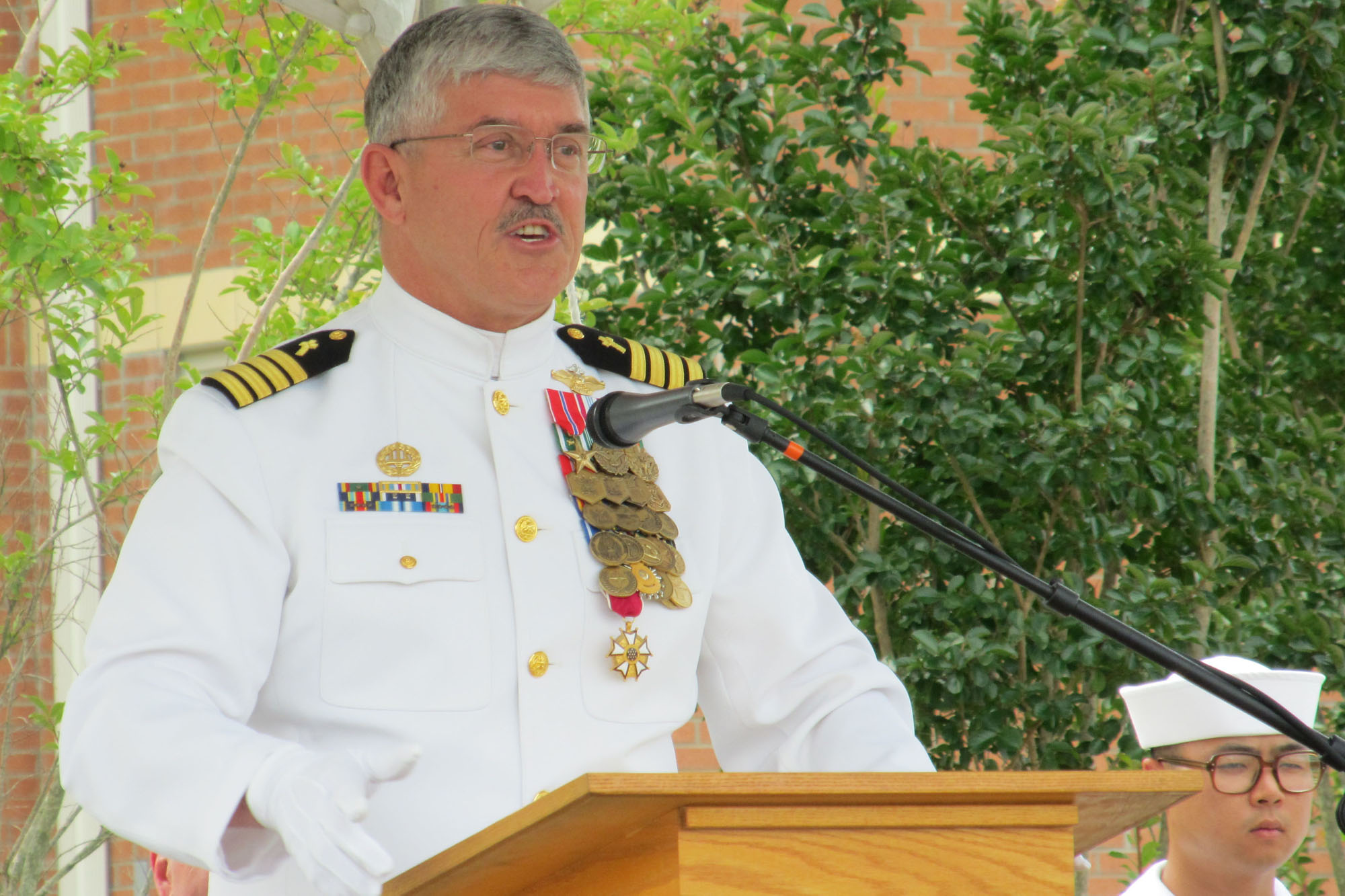
COLUMBIA, S.C. (BP) — “Do you feel safe in our home?” Kathy Langston asked her husband, Navy Chaplain Mike Langston.
“No, I don’t,” he replied.
 It was four years after his last tour of duty. Theirs was a family that understood deployment. Mike had been gone a total of nine and a half years during the course of their marriage.
It was four years after his last tour of duty. Theirs was a family that understood deployment. Mike had been gone a total of nine and a half years during the course of their marriage.
But they weren’t ready for this; the “best friend” relationship that had defined their marriage had become a distant memory replaced by tension and misunderstanding. Mike’s answer to that single question was the catalyst Kathy needed to shift her perspective.
“I can tell you exactly where I was standing in the kitchen when it broke through my head down to my heart,” Kathy said. “I realized I was wrong. He wasn’t angry at me, and I had totally misinterpreted everything.” The realization, she said, was “an act of the Holy Spirit.”
“That was the biggest revelation. This is not aimed at me. He’s just reacting. There’s nothing personal in it,” she said.
 “I came home from a war environment,” Mike said of deployments primarily in Afghanistan and Iraq. “One day I’m on the battlefield; the next day I’m in my living room. How do you turn that off?
“I came home from a war environment,” Mike said of deployments primarily in Afghanistan and Iraq. “One day I’m on the battlefield; the next day I’m in my living room. How do you turn that off?
“Inside, I knew something was wrong, but I couldn’t tell anybody because I was ashamed that as a former Marine, as a chaplain who had been on the battlefield helping other people, I was broken. Where does a chaplain go when he needs a chaplain?”
Mike was eventually diagnosed with moderate to severe PTSD (post-traumatic stress disorder).
“A governor controls how an engine runs, and if you lose that, you lose that control. PTSD does that to the internal makings of our body. We lose that governor,” Mike explained. “I worked with the psychiatrist, and I started learning different techniques and tools to help me be able to ratchet down that intensity.
“That started a seven-year trek of moving toward healing and hope,” he said.
“In that process, I felt like, sometimes, God had abandoned me,” Mike acknowledged. “I asked, ‘Where are You, God? Why me? What’s going on? Where are You in the midst of all this pain and hurt?’ After I started therapy, Kathy started educating herself on all the issues of PTSD.
 “She started becoming my helper alongside of me,” Mike said. “She told me that in our marriage vows, it said for better or worse, and she took that literally. She said, ‘These were the bad times, and I wasn’t going to let you get to the point where you self-destructed.'”
“She started becoming my helper alongside of me,” Mike said. “She told me that in our marriage vows, it said for better or worse, and she took that literally. She said, ‘These were the bad times, and I wasn’t going to let you get to the point where you self-destructed.'”
A hallmark moment in the healing process came in October 2014 when Mike was asked to speak at a Blue Star Mothers event for mothers of servicemen. There, he publicly revealed his PTSD diagnosis for the first time.
“I stood up and said, ‘My name is Captain Mike Langston. I’ve been diagnosed with moderate to severe PTSD. I’m undergoing treatment, and I’m moving to healing with a sense of hope in my Lord Jesus Christ.’
“Each time I tell my story it’s a little easier,” Mike said.
As the Langstons began to reach out and share more often, they realized there was a gap in Christian resources for those affected by PTSD. They have coauthored the book “A Journey to Hope: Healing the Traumatized Spirit” as a way to bridge that gap, not only for service members and their families, but also for churches.
A ministry of healing, Kathy stated, is the responsibility of the body of Christ.
“You are able to sit here in church and worship because men and women are over there getting scars and wounds,” she said. “We need to provide a safe place where the love of God is shared with those who are wounded. In our world today, we’re so busy and we’re so clogged up with things that trauma is one of the only ways the Spirit can reach us anymore to bring us into a closer relationship with God.
“We are responsible for those around us when they are so traumatized that they have to protect themselves,” Kathy added. “That is true of any long-term trauma victim — whether it’s abuse or war or law enforcement or something else. Sometimes it’s us on the outside that need to reach in and bring the Spirit to them, so that they do feel safe, and they feel like they can come out of their self-protection. And, in so doing, they can feel the presence of God.”
Mike, now retired after a 36-year military career that included the position of commanding officer of the Naval Chaplaincy School and Center, is a professor of chaplaincy at Columbia International University’s seminary and school of ministry in Columbia, S.C. Kathy is a professor teaching professional communication at the University of South Carolina. Learn more about the Langstons’ ministry and PTSD resources at hopethrufaith.com.
The North American Mission Board endorses over 1,300 military chaplains in all branches of the armed forces. Learn more at www.namb.net/chaplaincy.
















